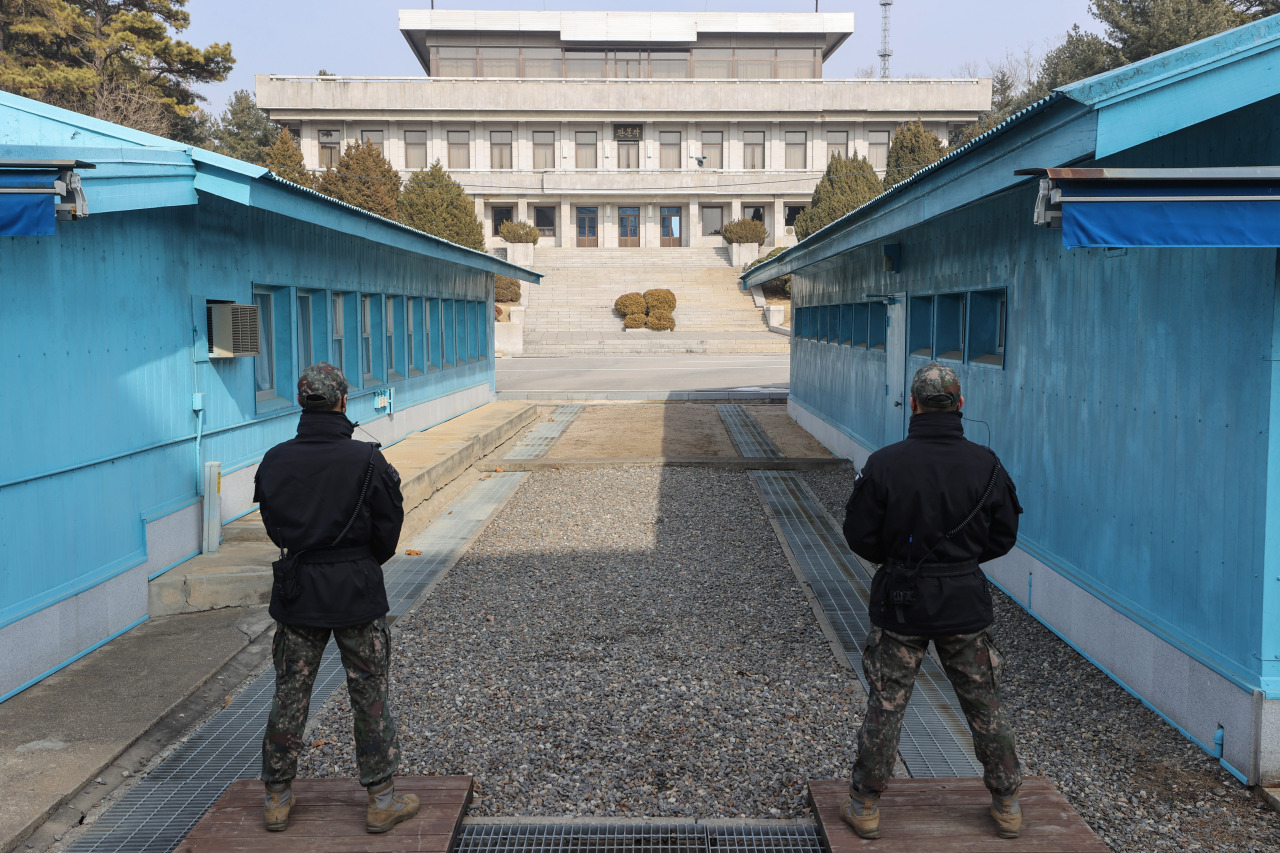Amendment bill not enough to protect NK defectors from repatriation: NGOs
By Ji Da-gyumPublished : Feb. 28, 2023 - 15:28

They said the proposed revision gives too much discretion to the unification minister, who is appointed by the president and therefore cannot be seen as politically independent.
Eight nongovernmental organizations from South Korea, Canada, the United States and the United Kingdom sent a joint letter to President Yoon Suk Yeol on Monday to point out inadequacies in the current proposed amendments to the North Korean Refugees Protection and Settlement Support Act, and to make suggestions to enhance statutory protections for North Korean escapees from forced repatriation.
The revision bill, announced in December, was proposed after the Yoon government raised questions as to the legitimacy of the previous Moon Jae-in government’s decision to forcibly send two North Korean fishermen captured in South Korean waters back to North Korea in November 2019. The Moon government repatriated two fishermen -- who were suspected of killing 16 crew members on a squid fishing boat before fleeing to South Korea -- based on its arbitrary judgment that their intention to defect to South Korea was insincere.
The proposed amendment stipulates the mandate of a unification minister to ascertain the intention of North Korean escapees to be protected by South Korea. But the NGOs expressed concerns that a unification minister -- who is appointed by a president and therefore is not free from political pressure -- could exploit the authority.
“Such a provision is prone to abuse. … The Minister of Unification and the MOU officials delegated to perform his functions cannot be considered politically independent,” the English-language letter read. “To protect the North Korean escapees from political pressure, it would be better to stipulate in the amendment that judges who are independent from the executive simply confirm orally and in writing the North Korean escapees’ expression of their intention to be protected.”
In the letter, the group of NGOs also raised the issue of the new clause that empowers a unification minister to refer North Korea defectors under criminal suspicion for investigation or “take necessary measures if needed for national security and social protection.”
Given that North Korean escapees who intend to live in South Korea are recognized by the Constitution as South Korean citizens, South Korea must investigate them itself. A unification minister does not need to determine grounds for requesting a criminal investigation.
The NGOs called for the Unification Ministry to “make referral for criminal investigation of the international criminal offenders and offenders of non-political and serious crimes such as murder among the escapees entering the Republic of Korea a legal obligation, not an administrative discretion.” Republic of Korea is the formal name for South Korea.
“Moreover, the Minister of Unification’s power to take ‘other necessary measures’ apart from referring for criminal investigation is a vague expression with vast potential for abuse that needs to be deleted. It may even be interpreted to allow forcible repatriation to places like North Korea,” the letter read.
The amendment bill also fails to codify the crucial legal rights of North Korean escapees including the principle of non-refoulement under international human rights law, according to the NGOs.
Article 3 of the Refugee Act provides that a recognized refugee, humanitarian sojourner or refugee applicant must not be repatriated forcibly against their will under Article 33 of the UN Refugee Convention and Article 3 of the UN Torture Convention.
But the Refugee Act does not apply to North Korean defectors as they are not considered to be foreigners, which is a prerequisite for recognition as refugees. Therefore, the NGO called for the Unification Ministry to codify the principle of non-refoulement for North Korean escapees who have entered South Korea.
“If there were such a provision, the forcible repatriation of two North Korean escapees, Mr. Woo Beom-seon and Mr. Kim Hyun-wook, on November 7, 2019 would have constituted a violation not only of the obligation under a treaty but also under Act of the National Assembly,” the letter read.
South Korea’s Ministry of Government Legislation currently examines the proposed amendment, according to the Unification Ministry. The ministry plans to submit the amendment bill to the National Assembly in April after being approved at the Cabinet meeting.










![[Today’s K-pop] BTS pop-up event to come to Seoul](http://res.heraldm.com/phpwas/restmb_idxmake.php?idx=644&simg=/content/image/2024/04/17/20240417050734_0.jpg&u=)






![[KH Explains] Hyundai's full hybrid edge to pay off amid slow transition to pure EVs](http://res.heraldm.com/phpwas/restmb_idxmake.php?idx=652&simg=/content/image/2024/04/18/20240418050645_0.jpg&u=20240419100350)

